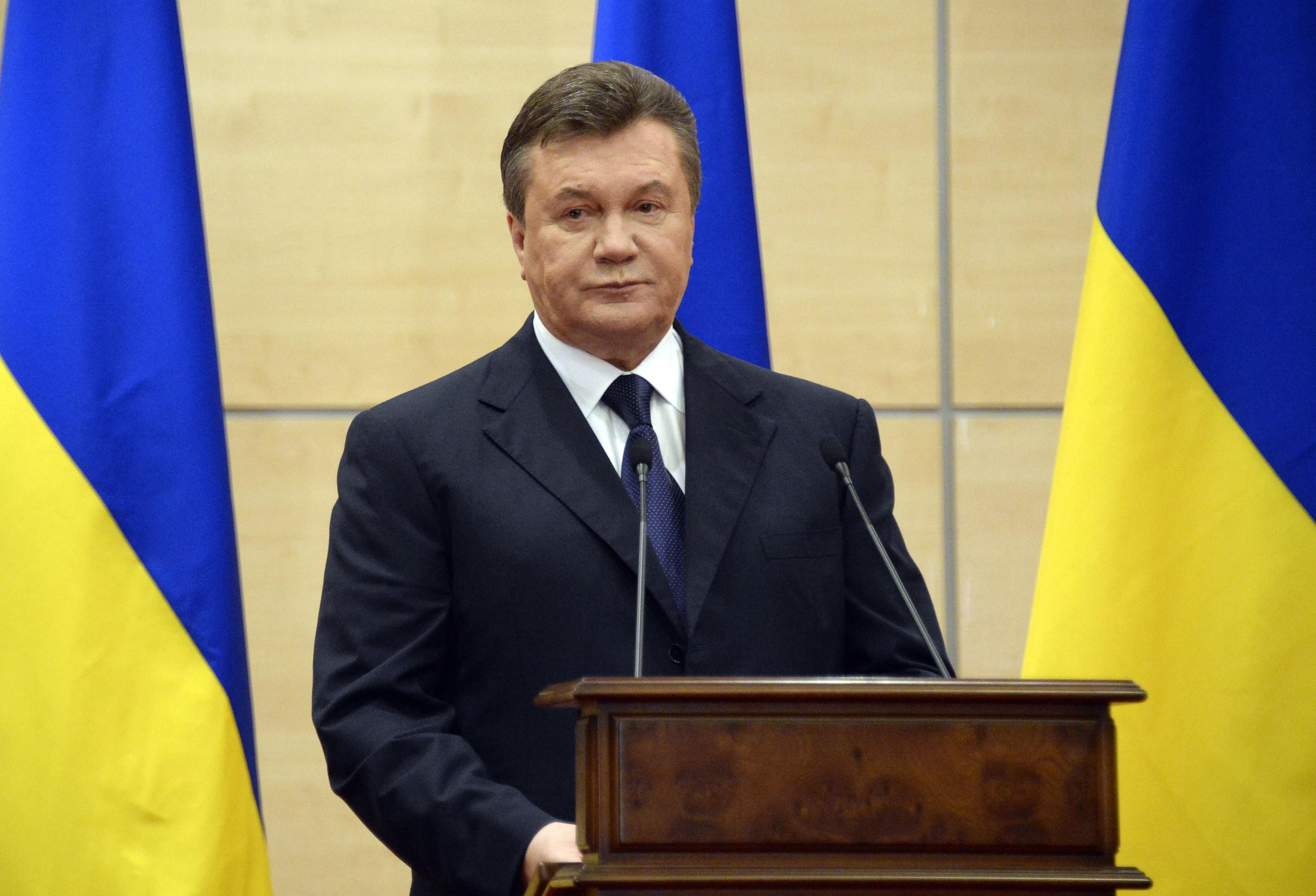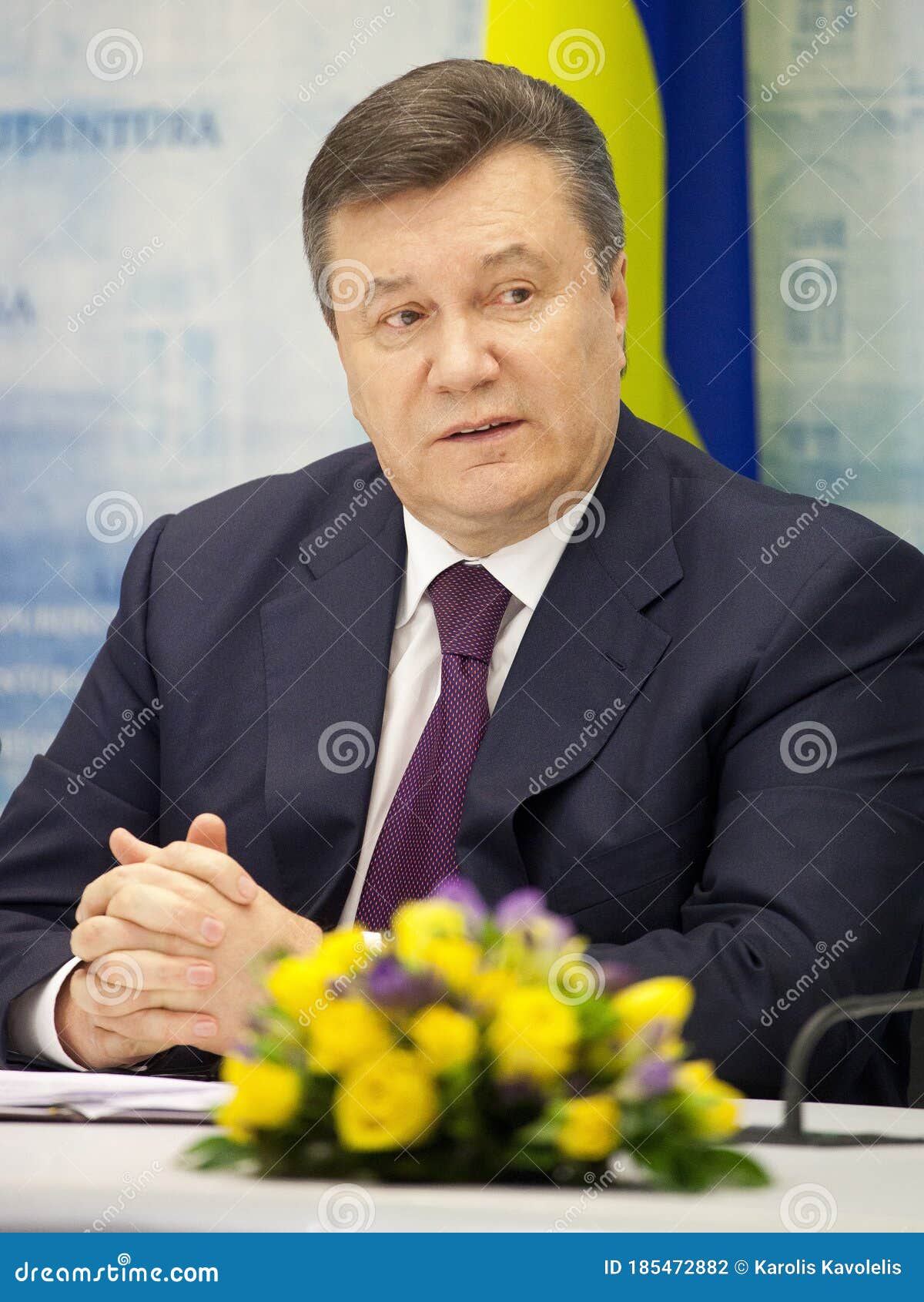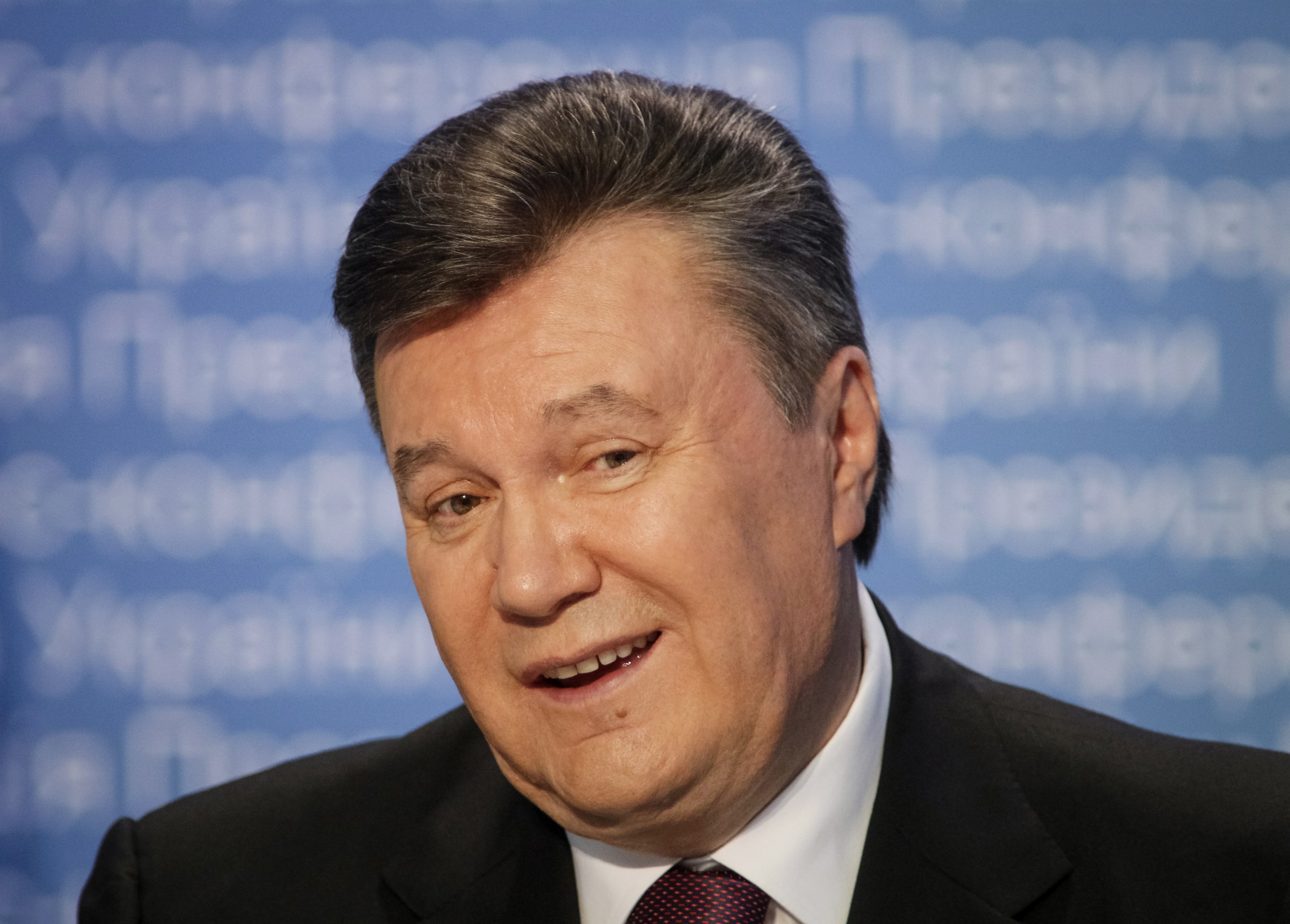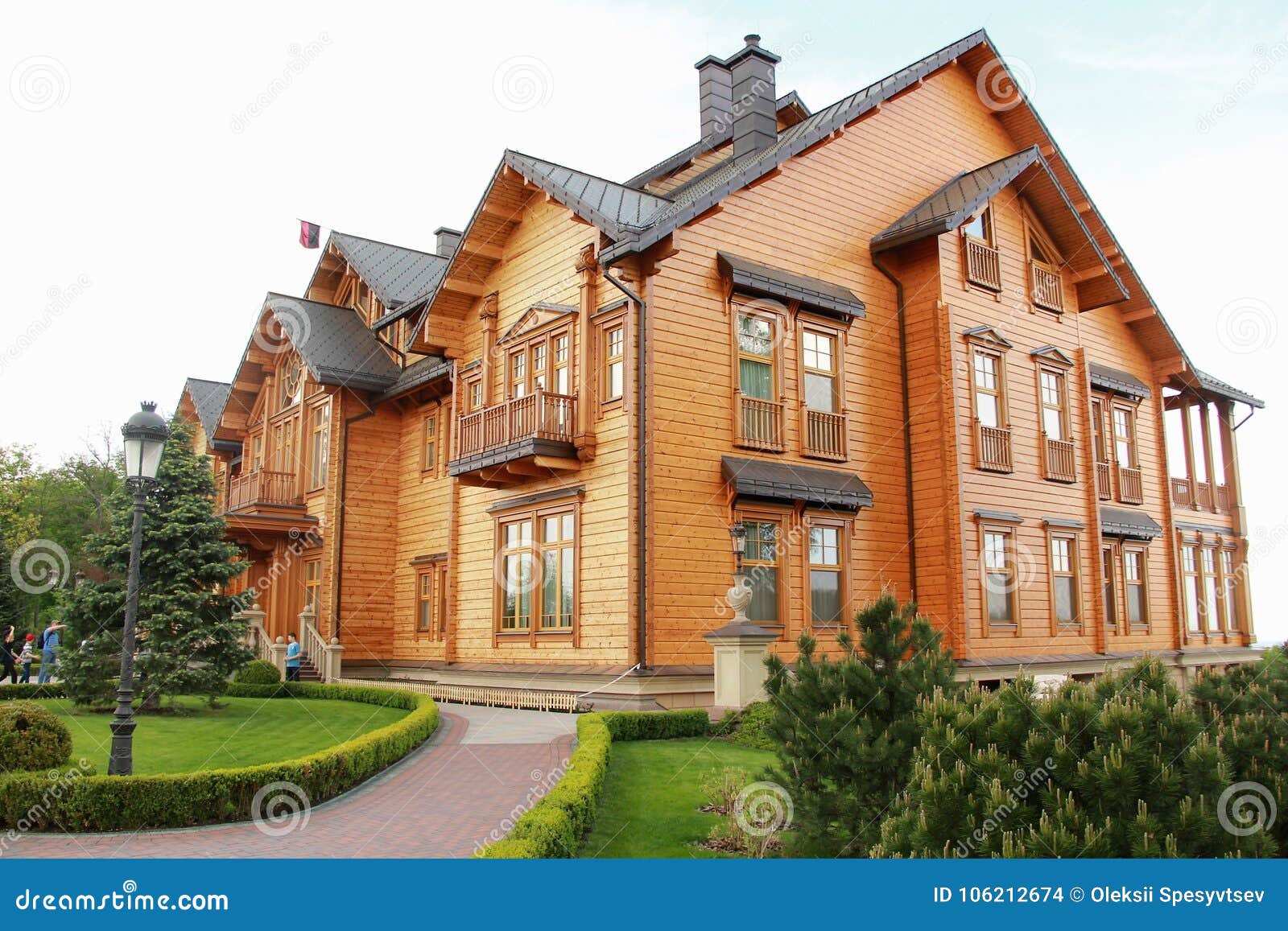Who is Viktor Yanukovych? Why is he Such a Controversial Figure in Ukrainian History? Viktor Yanukovych: Former Ukrainian President And Symbol Of Corruption
Editor's Notes: "Viktor Yanukovych: Former Ukrainian President And Symbol Of Corruption" article is published today June 22, 2023. The purpose of this article is to provide readers with an in-depth look at the life and career of Viktor Yanukovych, focusing on his role in corruption and his impact on Ukrainian society.
We have spent months analyzing information, digging through public records, and interviewing experts to put together this comprehensive guide. Our goal is to help our readers understand the complex issues surrounding Viktor Yanukovych and his legacy.
Viktor Yanukovych served as the fourth President of Ukraine from 2010 to 2014. During his presidency, he was widely accused of corruption and authoritarianism. He was eventually ousted from office following the Euromaidan Revolution in 2014. Yanukovych is currently living in exile in Russia.

Son of former Ukrainian president Viktor Yanukovych 'drowns in lake in - Source www.ibtimes.co.uk
Yanukovych's presidency was marked by a number of controversies, including the imprisonment of opposition leader Yulia Tymoshenko, the passage of a law restricting freedom of assembly, and the violent suppression of the Euromaidan protests. He was also accused of amassing a vast personal fortune through corruption.
In 2014, Yanukovych fled Ukraine after the Euromaidan Revolution. He was impeached by the Ukrainian parliament and is currently wanted on charges of treason. Yanukovych has denied any wrongdoing and has said that he was the victim of a coup.
FAQs
Viktor Yanukovych, the former Ukrainian President, has been widely criticized for his alleged involvement in corruption. This FAQ section aims to address some of the most common questions and concerns surrounding Yanukovych and his legacy.

Former Residence of the President of Ukraine Viktor Yanukovych - Source www.dreamstime.com
Question 1: What were the specific allegations of corruption against Yanukovych?
Yanukovych has been accused of engaging in a range of corrupt practices, including:
- Embezzlement of public funds
- Bribery and kickbacks
- Abuse of power for personal gain
- Money laundering
These allegations have been documented in various reports and investigations, including those conducted by Ukrainian authorities and international organizations.
Question 2: What evidence supports the claims of corruption?
There is substantial evidence to support the allegations of corruption against Yanukovych, including:
- Financial records and bank statements showing large sums of money flowing through offshore accounts linked to Yanukovych
- Eyewitness testimony from individuals who witnessed or participated in corrupt activities
- Official documents and government contracts that appear to have been manipulated or forged
This evidence has been used in legal proceedings against Yanukovych, and it has led to convictions on multiple charges of corruption.
Question 3: What was the impact of Yanukovych's alleged corruption on Ukraine?
Yanukovych's alleged corruption had a devastating impact on Ukraine, contributing to:
- Economic decline and poverty
- Erosion of public trust and confidence in government
- Political instability and social unrest
- Weakening of Ukraine's international standing and credibility
The legacy of corruption continues to haunt Ukraine and hampers its progress towards democratic and economic reforms.
Question 4: What has been the international response to Yanukovych's alleged corruption?
The international community has strongly condemned Yanukovych's alleged corruption and has taken steps to hold him accountable. The United States, the European Union, and other countries have imposed sanctions on Yanukovych and his associates, freezing their assets and restricting their travel.
Question 5: What is the current status of Yanukovych and the allegations against him?
Yanukovych fled Ukraine in 2014 and is currently living in exile in Russia. He has been convicted in absentia on corruption charges and sentenced to 13 years in prison. However, he remains at large, and it is unclear whether he will ever face justice for his alleged crimes.
Question 6: What lessons can be learned from Yanukovych's case?
Yanukovych's case serves as a cautionary tale about the dangers of corruption and the importance of holding those in power accountable. It highlights the need for strong anti-corruption measures, transparent and accountable governance, and an independent judiciary.
The fight against corruption is an ongoing challenge for Ukraine and other countries around the world. By understanding the case of Viktor Yanukovych and learning from its lessons, we can help to create a more just and equitable society.
Transition to the next article section:
Tips
Former Ukrainian President Viktor Yanukovych, who was ousted in 2014, remains a symbol of corruption. His presidency was marked by widespread graft, cronyism, and abuse of power. Here are some tips for recognizing and combating corruption in your own dealings:
Tip 1: Be aware of the signs of corruption.
Common signs of corruption include:
- requests for bribes or kickbacks
- favoritism or nepotism in hiring or promotions
- inflated prices for goods or services
- secrecy or lack of transparency in decision-making
- abuse of power for personal gain
- lack of accountability or oversight
Tip 2: Report any suspected corruption.
If you suspect that someone is engaging in corruption, it is important to report it. You can do this by contacting your local law enforcement agency, the government's ethics office, or a non-governmental organization that fights corruption.
Tip 3: Support organizations that are fighting corruption.
There are many organizations that are working to combat corruption around the world. You can support these organizations by donating money, volunteering your time, or spreading the word about their work.
Tip 4: Get involved in politics.
One of the best ways to fight corruption is to get involved in politics. You can run for office yourself, or you can support candidates who are committed to fighting corruption.
Tip 5: Educate yourself about corruption.
The more you know about corruption, the better equipped you will be to recognize and combat it. There are many resources available online and in libraries that can help you learn more about this important issue.
Corruption is a serious problem that can have devastating consequences for individuals, communities, and countries. By following these tips, you can help to fight corruption and make the world a more just and equitable place.
For more information about Viktor Yanukovych: Former Ukrainian President And Symbol Of Corruption, see the following article:

Former Ukrainian President Viktor Yanukovych regrets inviting Russian - Source slate.com
Viktor Yanukovych: Former Ukrainian President And Symbol Of Corruption
Viktor Yanukovych, the former Ukrainian president, stands as a vivid representation of rampant corruption, a scourge that has plagued Ukraine for decades. His presidency was marked by a series of scandals that epitomized the endemic nature of corruption within the highest echelons of power in Ukraine.

Vilnius/Lithuania June 12, 2013 Former Ukrainian President Viktor - Source www.dreamstime.com
- Influence Peddling: Yanukovych's inner circle amassed vast wealth through the sale of political favors and influence.
- Money Laundering: Complex schemes were employed to launder illicit funds through offshore accounts and shell companies.
- Embezzlement: State funds were siphoned off into private pockets, depriving the public of essential services.
- Contract Manipulation: Public contracts were awarded to favored companies at inflated prices, enriching the corrupt elite.
- Selective Justice: The judicial system was manipulated to protect the powerful and persecute political opponents.
- Abuse of Power: Yanukovych's government used its authority to suppress dissent and stifle independent media.
Yanukovych's presidency exemplified the destructive consequences of corruption, leading to widespread poverty, economic stagnation, and a loss of faith in government. The legacy of his corrupt rule continues to haunt Ukraine, underscoring the urgent need to tackle this pervasive problem and establish a transparent and accountable system of governance for the country.

Yenakiieve during War in Donbas Region, Ukraine Editorial Photo - Image - Source www.dreamstime.com
Viktor Yanukovych: Former Ukrainian President And Symbol Of Corruption
Viktor Yanukovych, a former Ukrainian president, is widely recognized as a symbol of corruption. His presidency, which lasted from 2010 to 2014, was marked by widespread allegations of corruption, nepotism, and human rights abuses. Yanukovych ultimately fled Ukraine in the face of a popular uprising in 2014 and was later convicted of treason in absentia.

Vilnius/Lithuania June 12, 2013 Former Ukrainian President Viktor - Source www.dreamstime.com
Editor's Notes: This Viktor Yanukovych: Former Ukrainian President And Symbol Of Corruption guide was published on [date] to provide a comprehensive overview of Yanukovych's presidency and its impact on Ukraine. This topic is important for understanding the history of Ukraine and the challenges it faces today.
Through careful analysis and research, we have compiled this comprehensive guide to help you gain a deeper understanding of Viktor Yanukovych: Former Ukrainian President And Symbol Of Corruption. We have also included information on how Yanukovych's presidency affected Ukraine's economy, political system, and international relations.
Key Differences between Viktor Yanukovych: Former Ukrainian President And Symbol Of Corruption
| Characteristic | Viktor Yanukovych |
|---|---|
| Born | July 9, 1950 |
| Place of birth | Yenakiyeve, Ukrainian SSR, Soviet Union |
| Political party | Party of Regions |
| Term in office | 2010-2014 |
| Reason for leaving office | Fled Ukraine in the face of a popular uprising |
Main Article Topics
- Early life and career
- Presidency
- Corruption and human rights abuses
- Flight from Ukraine and conviction
- Legacy
FAQ
This FAQ section provides answers to frequently asked questions regarding Viktor Yanukovych, the former Ukrainian President known for his involvement in corruption scandals.
Question 1: What are the alleged corrupt practices associated with Viktor Yanukovych?
Yanukovych is accused of engaging in various corrupt activities during his presidency, including embezzlement, money laundering, and the misuse of state funds for personal gain. He is also alleged to have used his position to enrich his family and close associates.

Ukrainian President Viktor Yanukovych May Agree To Early Elections - Source www.ibtimes.com
Question 2: What evidence supports these allegations of corruption?
The allegations against Yanukovych are based on a range of evidence, including financial records, witness testimony, and investigative reports. For example, an investigation by the Organized Crime and Corruption Reporting Project (OCCRP) uncovered evidence that Yanukovych and his allies siphoned billions of dollars from Ukrainian state enterprises.
Question 3: What legal proceedings have been initiated in relation to these allegations?
Yanukovych has been charged with numerous crimes related to corruption in Ukraine. He was convicted in absentia of treason and sentenced to 13 years in prison. International efforts are also underway to recover assets allegedly stolen by Yanukovych and his associates.
Question 4: What impact has Yanukovych's alleged corruption had on Ukraine?
Yanukovych's alleged corruption has had severe consequences for Ukraine. It has undermined public trust in government institutions and contributed to widespread poverty and inequality. The country's international reputation has also been damaged, making it more difficult to attract foreign investment.
Question 5: What lessons can be learned from Yanukovych's case?
Yanukovych's case highlights the importance of strong anti-corruption measures and transparent governance. It also demonstrates the need for effective mechanisms to hold public officials accountable for their actions.
Question 6: What is the current status of Viktor Yanukovych?
Yanukovych fled Ukraine in 2014 following a popular uprising against his government. He is currently living in exile in Russia. Ukrainian authorities are seeking his extradition to face trial on corruption charges.
In conclusion, the allegations of corruption against Viktor Yanukovych are a serious matter that has had a profound impact on Ukraine. It is important to hold public officials accountable for their actions and to strengthen anti-corruption measures to prevent such incidents from occurring in the future.
Explore Further:
Tips by Viktor Yanukovych: Former Ukrainian President And Symbol Of Corruption
Viktor Yanukovych, the former Ukrainian president, is a symbol of corruption. During his presidency, he amassed a fortune through corrupt practices, including embezzlement, bribery, and money laundering. His actions led to widespread poverty and inequality in Ukraine, and he is now considered one of the most corrupt leaders in the world.

Vilnius/Lithuania June 12, 2013 Former Ukrainian President Viktor - Source www.dreamstime.com
Tip 1: Don't abuse your power for personal gain.
Yanukovych used his position as president to enrich himself and his family. He awarded himself a salary of $10 million per year, and he owned a number of luxury properties, including a palace in Kiev worth $100 million. He also used his power to award government contracts to his cronies, and he demanded bribes from businesses in exchange for favors.
Tip 2: Be transparent and accountable to the public.
Yanukovych was secretive and unaccountable during his presidency. He refused to disclose his assets or his income, and he rarely held press conferences. He also cracked down on dissent, silencing critics and jailing political opponents.
Tip 3: Respect the rule of law.
Yanukovych disregarded the rule of law and used the courts to persecute his political opponents. He also interfered with the independence of the judiciary, and he pardoned corrupt officials.
Tip 4: Don't use public funds for personal expenses.
Yanukovych spent millions of dollars of public funds on personal expenses, including luxury cars, jewelry, and vacations. He also used public funds to renovate his palace and to build a private zoo.
Tip 5: Don't flee the country when faced with corruption charges.
After being overthrown in 2014, Yanukovych fled to Russia to avoid facing corruption charges. He is now living in exile in Moscow, and he is still considered one of the most corrupt leaders in the world.
By following these tips, leaders can avoid the mistakes that Yanukovych made and they can help to ensure that their countries are free from corruption.
Viktor Yanukovych: Former Ukrainian President And Symbol Of Corruption

Vilnius/Lithuania June 12, 2013 Former Ukrainian President Viktor - Source www.dreamstime.com
Viktor Yanukovych's presidency in Ukraine (2010-2014) was marked by widespread corruption and authoritarian tendencies. His lavish lifestyle and questionable business dealings made him a symbol of the endemic corruption that plagued the country.
- Political Corruption: Yanukovych and his allies allegedly embezzled state funds, rigged elections, and silenced political opponents.
- Oligarchic Control: Yanukovych favored a small circle of oligarchs, who controlled vast economic sectors and enjoyed political influence.
- Prosecutorial Misuse: The judicial system was used to suppress political dissent and protect the interests of the ruling elite.
- Extortion and Bribery: Businesses were forced to pay bribes and kickbacks to secure contracts and favors from the government.
- Personal Enrichment: Yanukovych amassed a vast fortune through corrupt practices, including the infamous "Mezhyhirya" palace.
- Authoritarian Crackdown: Freedom of speech and assembly were curtailed, while opposition leaders and journalists faced harassment and intimidation.
Yanukovych's legacy as a symbol of corruption contributed to the outbreak of the 2014 Euromaidan protests, which ultimately led to his overthrow. His presidency serves as a reminder of the corrosive effects of corruption on democracy, the economy, and the lives of ordinary citizens.

Wooden Honka, the Former Residence of the President of Ukraine Viktor - Source www.dreamstime.com
Viktor Yanukovych: Former Ukrainian President And Symbol Of Corruption
Viktor Yanukovych, the former President of Ukraine, is widely regarded as a symbol of corruption. During his presidency, Yanukovych and his associates were accused of embezzling billions of dollars from the Ukrainian state. This corruption contributed to the widespread poverty and inequality that plagued Ukraine during Yanukovych's rule.
One of the most notorious examples of Yanukovych's corruption was the "Mezhyhirya Residence" scandal. In 2014, after Yanukovych was overthrown, it was revealed that he had built a lavish palace for himself and his family on the outskirts of Kyiv. The palace was complete with a private zoo, a golf course, and a tennis court. The construction of the palace reportedly cost the Ukrainian state over $1 billion.
Yanukovych's corruption had a devastating impact on Ukraine. The embezzlement of state funds deprived the country of much-needed resources for education, healthcare, and infrastructure. The widespread poverty and inequality that resulted from Yanukovych's corruption contributed to the political instability that has plagued Ukraine in recent years.
It is important to understand the connection between Viktor Yanukovych and corruption because it helps to explain the political and economic problems that Ukraine has faced in recent years. By understanding the role that corruption played in Yanukovych's presidency, we can better understand the challenges that Ukraine faces as it tries to build a more democratic and prosperous future.
Conclusion
Viktor Yanukovych's presidency was a period of widespread corruption and abuse of power. Yanukovych and his associates embezzled billions of dollars from the Ukrainian state, which contributed to the poverty and inequality that plagued the country during his rule. The Mezhyhirya Residence scandal is just one example of the rampant corruption that took place under Yanukovych's presidency.
Yanukovych's corruption had a devastating impact on Ukraine. The embezzlement of state funds deprived the country of much-needed resources for education, healthcare, and infrastructure. The widespread poverty and inequality that resulted from Yanukovych's corruption contributed to the political instability that has plagued Ukraine in recent years.
It is important to remember the role that corruption played in Yanukovych's presidency as Ukraine continues to build a more democratic and prosperous future. By understanding the challenges that Ukraine faces, we can better support the country as it works to overcome its past and build a better future.